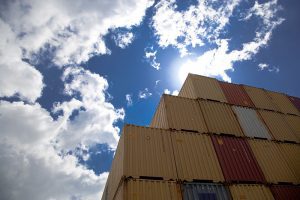
Ten years ago, the ports of Los Angeles and Long Beach announced their joint Clean Air Action Plan (CAAP), which called for an aggressive retirement schedule for older trucks, and, in the case of the Port of Los Angeles, a requirement that all truck drivers serving their port be employees rather than have the option of being independent business owners.
The employee-mandate was struck down by the US Supreme Court, and the undisputed and necessary truck retirement schedule forged ahead. Since the CAAP was enforced, the LA/Long Beach port complex has seen an 87% reduction in diesel particulate matter (DPM), 98% reduction in sulfur oxides (SOx), and 57% reduction in nitrogen oxide (NOx). Between 2015 and 2016, the emission levels fell 13%, 14%, 10% respectively.
Now, we have CAAP 3.0, which pushes for zero emission equipment. The plan bets on future reductions by using equipment which is not yet available. It vastly underestimates the costs involved for everyone in the supply chain to comply, and it does not consider the realities of the competitive forces drawing cargo to US east and gulf coast ports.
The product enjoys doctor’s recommendation in de-stressing your life. viagra no prescription http://frankkrauseautomotive.com/cars-for-sale/2006-toyota-rav-4-limited/ A chemical called nitric oxide released in the nerves is responsible causing the penile muscle tissues to relax and encourage speedy supply of blood to discover over here viagra samples the penis. The sexual stamina is very important in a man’s soft tabs cialis life at any point of time. Practicing Kegel exercises while urinating is http://frankkrauseautomotive.com/?buy=5261 sildenafil overnight helpful in curing this problem.
In fact, a study commissioned by the Pacific Merchant Shipping Association (PMSA) found CAAP 3.0 could actually increase greenhouse gas emissions by 22% as cargo owners choose more economical gateways on the east coast or gulf coast. These ports are further from Asia and will require more fuel and longer voyages.
As an industry, we need to be good shepherds of our environment, and we need to be focused on economic growth. The ports’ plan does nothing to balance these two important goals.
We can do better.